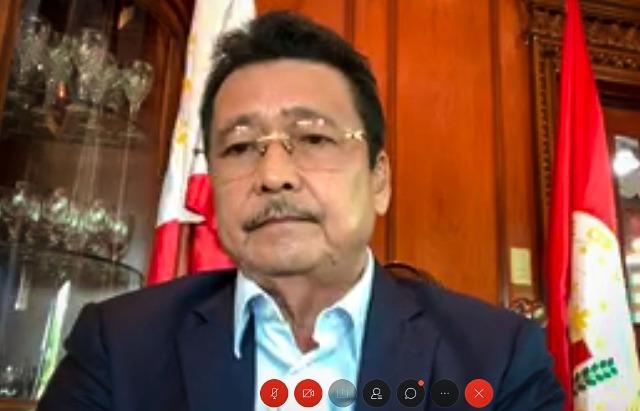Lito Lapid files bill creating second-hand gadgets donation program for Pinoy students

Senator Manuel "Lito" Lapid has filed a bill seeking to establish an electronics donation and recycling program in the Philippines to manage e-waste and bridge the digital divide among Filipino students amid the shift to distance learning.
Senate Bill No. 1846 or the Electronics Donation Recycling Act requires all manufacturers and retailers of electronic gadgets to set up donation and recycling booths in their sales outlets, stores, service centers and similar locations all over the country.
Citing a study conducted by engineers from the University of the Philippines, Lapid said the number of discarded phones will hit over 24.9 million in 2021, with respondents saying that they were replacing mobile phones at a rate of once every one to two years.
"Hindi natin masisisi ang ating mga kababayan kung gugustuhin nilang palitan ng bago ang kanilang mga gadget kahit hindi pa ito sira, lalo kung may pambili naman sila. Pero kung tutuusin ang mga lumang gadget gaya ng mobile phones at laptop, hindi naman kailangan itapon," Lapid said.
"Pwede pa itong ipamigay dahil marami pa ang pwedeng makinabang dito lalo sa panahong ito. Maraming mga estudyante at guro ang walang magamit na cellphone o computer habang nasa online classes tayo dahil sa pandemya," he added.
The senator said that based on a 2020 study by the Philippine Institute for Development Studies (PIDS), only 69 percent of poor households in the country have mobile phones, while only one percent and six percent of poor and low-income families have computers, respectively.
There are more than 600,000 public school students who lack gadgets in Metro Manila alone, he added.
Gadget owners who wish to donate or recycle their laptops, cellphones, tablets, and similar electronic devices may drop them off at the donation and recycling booths mandated by the bill.
Under the proposed measure, the Department of Trade and Industry and the Department of Information and Communications Technology will be in charge of the sorting and recycling process, as well as the repairing required for donated gadgets.
Donated gadgets shall be given to the Department of Education for distribution to poor students who will be determined by the guidelines to be crafted by the agency.
On the other hand, old gadgets intended to be disposed of shall be turned over to the Department of Environment and Natural Resources-accredited facilities capable of recycling electronic gadgets and components.
Basic education in public schools across the country is set to start on October 5 without face-to-face classes. Around 24.6 million learners in the K-12 program have enrolled, as of September 25.
Internet, TV, radio, and printed modules will be used for distance learning to prevent the transmission of COVID-19 in schools.
The Bureau of Customs recently said it is also conducting an inventory of confiscated gadgets, which it plans to donate to the DepEd.—AOL, GMA News





